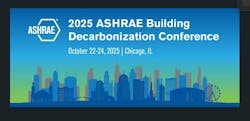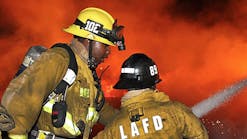PRESS RELEASE
WASHINGTON, DC, July 13, 2021 – The National Institute of Building Sciences Consultative Council has issued its 2020 Moving Forward Report, looking closely at the importance of healthy buildings.
The report examines how buildings can protect and promote public health, providing recommendations for President Biden and policymakers on three components of healthy buildings: indoor environmental quality, the importance of design in promoting health, and promoting knowledge transfer between building owners and public health officials.
“Ensuring that the spaces where we live and work are healthy and safe for continued occupancy is critical to overcoming the pandemic,” said Lakisha A. Woods, CAE, President and CEO of NIBS. “This is a fundamental pillar of public health and community resilience. The concept of healthy buildings goes well beyond continual sanitation of a building’s indoor environment to eliminate pathogens.”
The NIBS Consultative Council assembles high-level building community leaders to make collective recommendations directly to the President of the United States and policymakers to improve our nation’s buildings and infrastructure.
Among the recommendations in the report:
- The Administration, U.S. Department of Energy (DOE), The Centers for Disease Control and Prevention (CDC), U.S. Environmental Protection Agency (EPA), National Institute of Standards and Technology (NIST) and other relevant federal agencies should increase investment into critical research on the impacts of indoor environmental quality (IEQ) and resilience on health and productivity. Of particular importance is research into how retrofits to the nation’s existing building stock can be used to improve IEQ;
- Federal agencies, including DOE, NIST, EPA, General Services Administration (GSA), and United States Department of Housing and Urban Development (HUD), should support research aimed at identifying improvements to building codes and other criteria that can provide cost-effective approaches to enhanced building performance. This should include opportunities to shorten the regulatory and code development process, and enable it to be more anticipatory of current and future disruptions to public health;
- Congress, U.S. Department of Transportation, HUD, DOE, Federal Emergency Management Agency and EPA, with input from the community-based organizations, advocates, and the private sector, should identify and enact policies, including incentive programs, that encourage building owners and operators to invest in critical activities that promote healthy IEQ. Clean water, healthy high-performing buildings, clean interior and exterior air, and fair and equitable access to healthy and resilient places are critical components of our nation’s infrastructure. Particular incentive should be given to supporting improvements in disadvantaged communities or populations that are impacted by flaws in existing structures, those constructed with unsafe or toxic materials, or that present unsafe living or working conditions to occupants.
Visit the Consultative Council for more information or to read the full report.
About NIBS
National Institute of Building Sciences brings together labor and consumer interests, government representatives, regulatory agencies, and members of the building industry to identify and resolve problems and potential problems around the construction of housing and commercial buildings. NIBS is a nonprofit, non-governmental organization. It was established by Congress in 1974. For more information, visit nibs.org or follow @bldgsciences on Twitter and Facebook.
For more, contact Christine Cube, Social Media & Public Relations Manager, [email protected].









